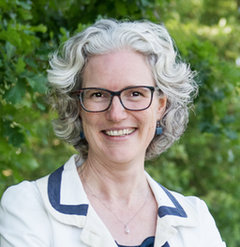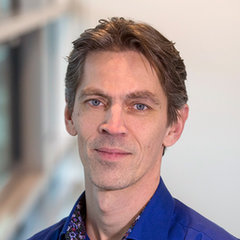
Editorial
This issue of Oncode’s Digital Magazine is a special edition, a celebratory one at the five year mark of Oncode Institute. And so we turned the editorial into something different too: a candid and personal interview with Oncode Institute directors Geert Kops and Chris De Jonghe, looking back at Oncode’s first five years.

Chris
De Jonghe
Valorization Director
Geert
Kops
Scientific Director & Head of the Institute
Looking back at Oncode’s first five years.

How do you look back at Oncode’s development, from its beginnings until now?
Geert: ‘What I see now looking back is quite an impressive maturation. It all started with an idea on paper, and so many things had to be figured out at the time. It was a process with ups and downs and adjustments along the way. There is always space for improvement, of course, but we now have a professional and productive institute’.
Chris: ‘I’ve seen Oncode’s early development only from a distance. Oncode is built after a proven model, Vlaams Instituut voor Biotechnologie (VIB), but at the time, it was not clear how to establish a similar institute in the local Dutch context. It took many years to take off, to get all funders on board and find the right format. But when the first tangible results came out, all struggles turned into energy and enthusiasm. I think it’s fair to say that Oncode exceeded the initial expectations in so many ways, and that is also reflected in the excellent review we received from the International Review Committee.’

How was the process of securing the continuation, what does the future look like?
Chris: ‘Well, based on its successes and on the prior commitment from at least the public funders to continue funding for the next 5 years, I had expected a smoother transition. However, that turned out to be a lengthy and difficult process. That is luckily completed now. So now we can look ahead again.’
Geert: ‘Yes, and the goals are clear and have not changed, because they centre around the core concept that true innovations in cancer treatments come from fundamental insights in cancer biology. We spent much time in the past years building a national network, supporting the scientists with programs and support teams. The goal was to stimulate more collaboration, to challenge researchers to be as bold as they can be, to make everyone realize the potential for impact of their research. It was also to instil confidence that Oncode’s support teams can realize that impact.’
‘For Phase 2, We are now transitioning to refocusing on our main goal. In the beginning we took on many activities. But now we are narrowing our focus, and we are making choices. We can do a lot but do we want to? This is a maturation: being more selective and choosing the directions that make most impact.’

What is your personal highlight from the first 5 years of Oncode?
Chris: ‘In these first five years we saw the first products in the clinic: the first proprietary product, the TEIPP vaccine against non-small cell lung cancer developed by Oncode Investigator Sjoerd van der Burg (LUMC), and the repurposed drug tasquinimod for myeloproliferative neoplasm, identified by Oncode Investigator Rebekka Schneider (Erasmus MC), which further led to a collaboration with Active Biotech. Another highlight is the launch of Immagene – that went from a CRISPR screen in the lab of Oncode Investigator Daniel Peeper (NKI), to a real molecule that is being developed and yields promise for patients with difficult to treat blood cancers.
Geert: ‘My highlight is the Oncode Accelerator Projects, because they show we have created an collaborative network in the Netherlands that is thinking broadly about the challenges we face and how to tackle them. It was an experiment at first – if we organize science brainstorm sessions, will this yield important challenges that Oncode could uniquely tackle? And that worked out really well. We got 2 funded projects that are now operational.’




